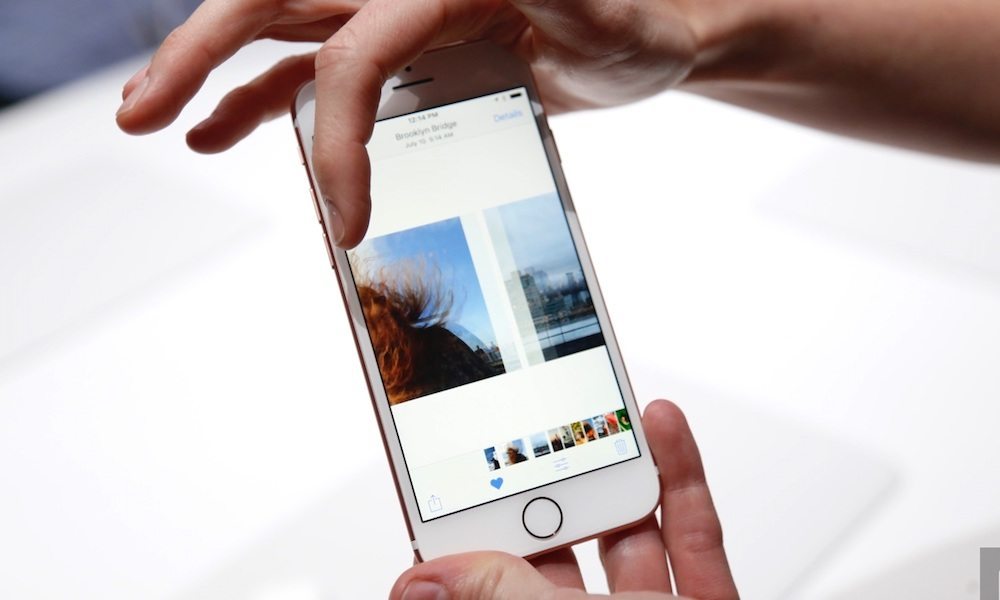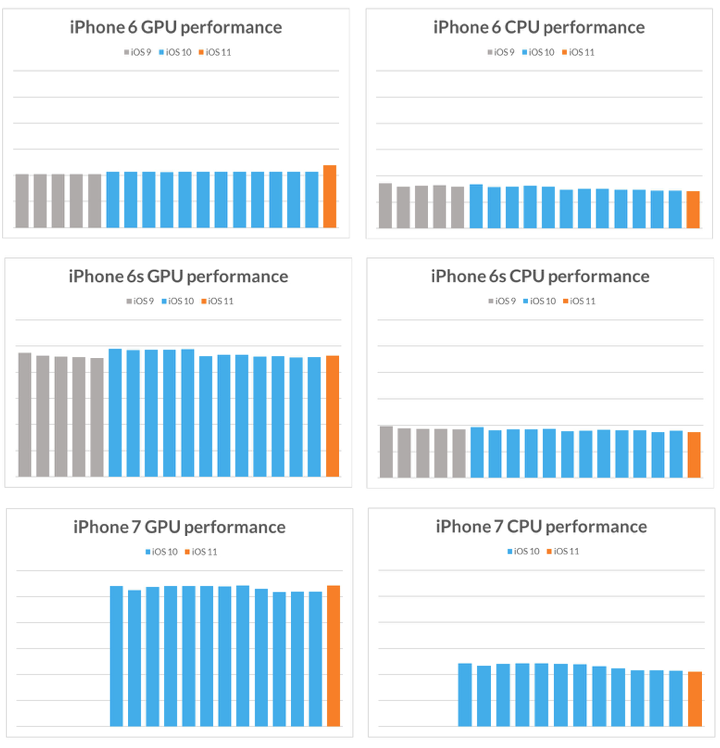Study Finds Apple Doesn’t Make Aging iPhones Slow Intentionally
 Credit: AOL
Credit: AOLToggle Dark Mode
A conspiracy theory has circulated widely that Apple is intentionally throttling the performance of older iPhone models using its iOS updates in order to spur people to upgrade to newer devices. This is untrue according to Futuremark, a benchmarking firm which found that performance across seven different iPhone models had remained largely consistent in spite of iOS updates.
Futuremark’s free 3DMark benchmarking app measures the performance of smartphones by subjecting them to a demanding battery of tests that generate a set of scores. The firm ran the seven different iPhone models through the Sling Shot Extreme Graphics and Extreme Physics tests, which respectively evaluate GPU and CPU performance.
Over the course of a month, Futuremark was able to collect more than one hundred thousand benchmark results for the iPhone models and determined that, “rather than intentionally degrading the performance of older models, Apple actually does a good job of supporting its older devices with regular updates that maintain a consistent level of performance across iOS versions.”
The older iPhone 5s, for example, saw fairly consistent GPU and CPU performance across iOS 9, iOS 10, and iOS 11, “with only minor variations that fall well within normal levels.” An independent test by Ars Technica found a slight, but acceptable decrease in app launch times when an iPhone 5s upgraded to iOS 11 from iOS 10.
The results for the iPhones 6, 6s, and 7 also showed that GPU performance remained fairly stable from iOS 9 to iOS 11, with only minor fluctuations. In fact, the iPhone 6 saw GPU performance jump noticeably with the introduction of iOS 11.

On the other hand, the models saw CPU performance drop slightly over time, “possibly due to minor iOS updates or other factors —but a user would be unlikely to notice this small difference in everyday use,” Futuremark explained. It’s normal for older hardware with relatively slower processors to experience performance decay when updated with the latest version of iOS. Newer apps don’t always work as smoothly on older models.
The decision to update lies with the user, who should weigh whether the decline in performance and speed is worth the new features, capabilities, and security updates that come with newer versions of iOS.
In the end, Futuremark notes that rumors about Apple intentionally throttling performance seem to spike whenever the company releases newer models. That trend may be partially attributed to “the psychological effect of knowing that there is a new and improved model available, which can make your own device seem outdated”, Futuremark suggests.






